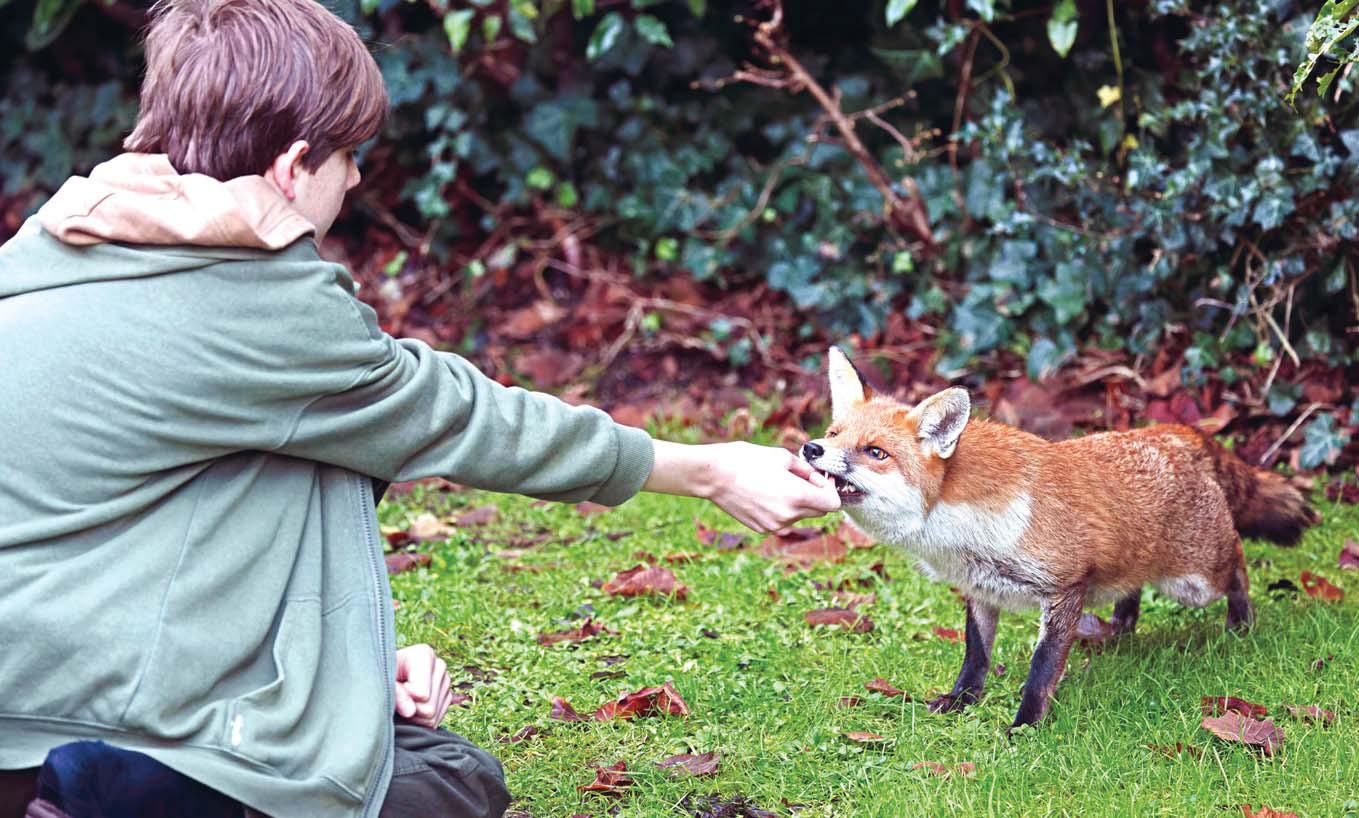
In villages, towns and cities, lots of different animals have had to adapt to living alongside humans. Badgers, birds and foxes are some examples of species that have learned how to survive in these environments. Many people enjoy seeing these animals out and about near where they live, and like to leave bits of food out for them to eat. Whether it’s seeds in a bird feeder or some tinned food left out for a fox, it’s a fun way to connect with wildlife. However, other people think it’s better to leave animals alone.
Lend a helping hand
Some times of the year are particularly tough for certain creatures. In winter when the ground is very cold and hard, or when it hasn’t rained for a long time, it’s difficult for animals like foxes and badgers to find insects and earthworms. Giving animals food can help them to get through these periods when their natural food sources are harder to find.
Leaving food out for animals may also encourage biodiversity, which is the variety of wildlife in a particular area. A study has shown that people in the UK have seen a more diverse range of bird species in their gardens since 1970, which scientists have linked to more people using bird feeders.
Connecting with nature
Diese Geschichte stammt aus der Issue 71-Ausgabe von The Week Junior Science+Nature UK.
Starten Sie Ihre 7-tägige kostenlose Testversion von Magzter GOLD, um auf Tausende kuratierte Premium-Storys sowie über 8.000 Zeitschriften und Zeitungen zuzugreifen.
Bereits Abonnent ? Anmelden
Diese Geschichte stammt aus der Issue 71-Ausgabe von The Week Junior Science+Nature UK.
Starten Sie Ihre 7-tägige kostenlose Testversion von Magzter GOLD, um auf Tausende kuratierte Premium-Storys sowie über 8.000 Zeitschriften und Zeitungen zuzugreifen.
Bereits Abonnent? Anmelden

Are cats smarter than dogs?
They're the UK's top pets, but which is more intelligent? You decide!

Could people turn Mars into another Earth?
Sven Bilén explores how humans might make a home on another world.

FUNNY BY NATURE
Claire Karwowski tracks down the wackiest wildlife that's cracking up the animal kingdom.

WEIRD SCIENCE
A round-up of the strangest science stories from around the world.

Guardians of the forest
Meet the incredible people protecting the Amazon rainforest.

The Mariana Trench
Dive in to find out how far down the ocean goes and what it's really like at the bottom.

Megan McCubbin
Meet the zoologist trying to change people's views of animals with a bad rep.

MAX POWER
From the second you wake up in the morning, your way of life is made possible thanks to the amazing power of electricity.

Your heart has a "brain"
New research by scientists at Sweden, and Columbia University, in the US, suggests that your heart could have its own \"mini brain\".

Ethiopian wolves could be furry pollinators
Sweet-toothed Ethiopian wolves have been seen lapping up nectar have been seen happing up nectar from red hot poker flowers.